Key highlights and observations
The Behavioral Change Communication for e-Cooking (BCCeC) Project, implemented by the National Renewable Energy Platform (NREP) in collaboration with the Ministry of Energy and Mineral Development (MEMD), conducted a week-long outreach campaign in Mbarara City from March 2nd to 8th, 2025. This initiative, funded by the UK’s Foreign Commonwealth and Development Office (FCDO) through the Modern Energy Cooking Services (MECS), sought to accelerate the adoption of electric cooking technologies in Uganda. The campaign aimed to promote clean cooking technologies, particularly Electric Pressure Cookers (EPCs), as an alternative to traditional biomass fuels like charcoal and firewood. The activities included a two-day stakeholder workshop, public exhibitions, live cooking demonstrations, radio and TV discussions, and community engagement forums.
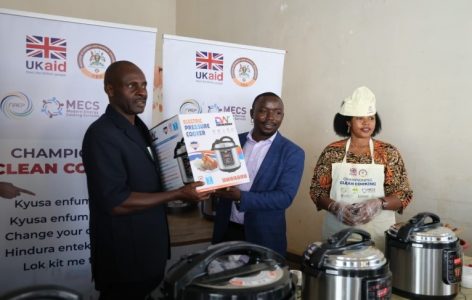
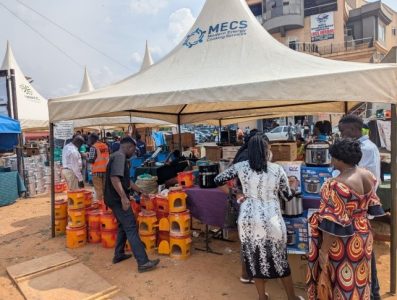
Key highlights and observations
The outreach campaign in Mbarara City employed a multi-channel approach to promote clean cooking technologies, engaging stakeholders through media discussions, workshops, and live demonstrations. Experts like Dr. Nicholas Mukisa and Dr. Paul Nduhuura used platforms such as Radio West and TV West to highlight the financial, environmental, and health benefits of electric cooking. A key component was the stakeholder consultation, where local leaders, energy experts, and development partners discussed collaborative solutions for increasing adoption. Live cooking demonstrations provided hands-on experience with Electric Pressure Cookers (EPCs), allowing residents to witness their efficiency and cost-saving potential firsthand.
Survey findings underscored the urgency of the initiative, revealing that only 2% of Ugandans cook with electricity, despite 50% awareness in Mbarara City. High dependency on firewood and charcoal continues to drive deforestation, with Uganda losing 37.6kha of its natural forests which is equivalent to 44.5Mt of Carbon Emissions. The health risks associated with biomass cooking, including respiratory illnesses and eye irritation, disproportionately affect women and children. However, EPCs offer a promising alternative, enabling households to cut electricity costs by up to 50%.
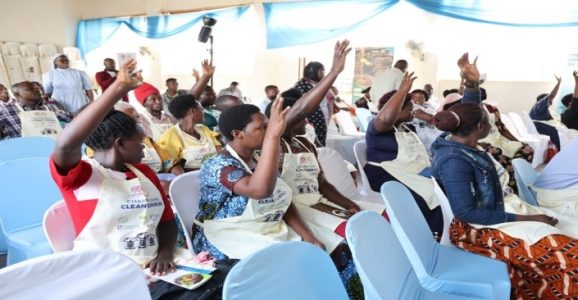
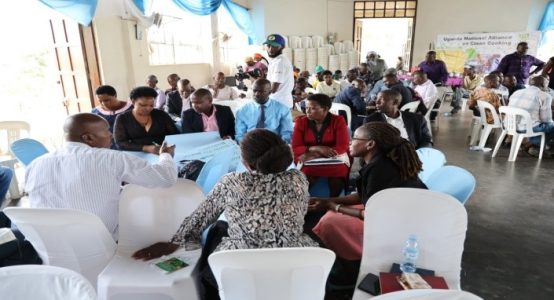
Key challenges and lessons learned
The Clean Cooking Initiative in Mbarara City sparked vital discussions on environmental conservation, energy efficiency, and public health, emphasizing the urgent need to transition from firewood and charcoal to electric cooking technologies. Experts highlighted Uganda’s alarming deforestation rate of 52 tons of trees lost annually, with institutions like schools, military units, and prisons heavily reliant on firewood. Dr. Nicholas Mukisa noted that schools spend up to 50 million UGX per term on firewood, while Major General Paul Muhanguzi and Mr. Hasakya Samson stressed the need for cost-effective alternatives like EPCs and biogas. Challenges such as affordability, electricity reliability, and local technical support were addressed, with calls to strengthen technician training and distribute clean cooking technologies locally. Mayor Robert Mugabe Kakyebezi and Deputy RCC Ms. Kankunda Jackline participated in live EPC demonstrations, reinforcing commitment to sustainable cooking solutions and the need for ongoing collaboration to overcome adoption barriers.
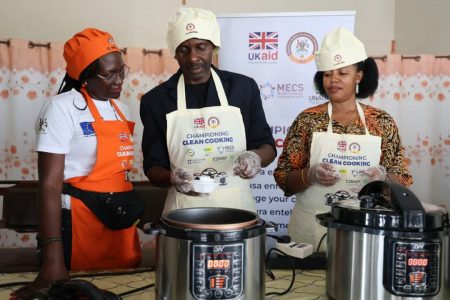
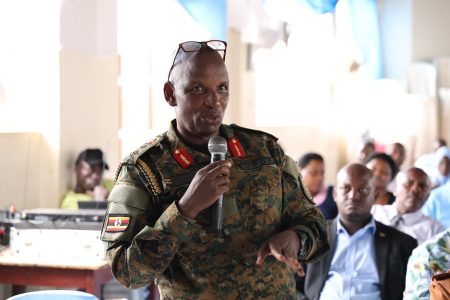
Conclusion and next steps
The BCCeC outreach campaign in Mbarara City provided valuable insights into the barriers and opportunities for scaling clean cooking technologies. The strong engagement from stakeholders, including government officials, local leaders, and community members, demonstrated a growing interest in transitioning to electric cooking. Moving forward, NREP will collaborate with partners to address affordability challenges, improve accessibility, and strengthen technical support for EPCs. Plans are underway to expand awareness campaigns, train local distributors, and explore financing options for households. A follow-up session is scheduled later in the year to assess progress, gather feedback, and reinforce the adoption of clean cooking solutions.


